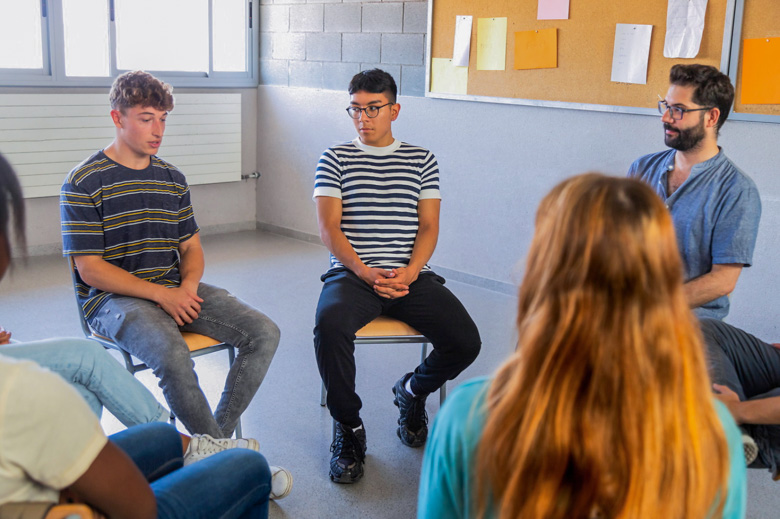»Ed.S. in School Psychology
The Educational Specialist (Ed.S.) program in School Psychology is for candidates who wish to work as school psychologists with children from preschool through high school. Chapman University’s Ed.S. in School Psychology program prepares students to perform a variety of tasks including assessment for intervention, mental health counseling, behavior management and consulting with teachers and parents.
- The Ed.S school psychology program at Chapman is fully accredited by the National Association of School Psychologists (NASP: Program Annual Report and Student Outcomes Data), the International School Psychology Association (ISPA) and the California Commission on Teacher Credentialing (CTC).
- The curriculum is built on the NASP Domains of Training and Practice as well as the counseling and school psychology (CSP) programs' eight “big ideas”:
- Collaboration
- Oral communication
- Self-reflection and tolerance for complexity and ambiguity
- Written communication
- Commitment to service and advocacy
- Building solutions for children through an appreciation of their strengths and resources
- Understanding children both as individuals and as participants in systems
- Time management and organizational skills
Why Attallah College?
- Enjoy the benefits of a low student-to-faculty ratios due to our small class sizes
- Comprehensive financial aid opportunities including tuition assistance and scholarships available
- Tailored support and personalized instruction for individual learning needs
- Experiential and community-based learning that integrates coursework
- Diverse multicultural and multilingual fieldwork placement settings
- A prestigious reputation that extends to state, national and international accreditation and recognition
Our Students and Alumni
Chapman University Ed.S. in School Psychology graduates are employed all across Southern California, including in these school districts:
- Orange Unified School District
- Santa Ana Unified School District
- Tustin Unified School District
- Irvine Unified School District
- Corona-Norco Unified School District
- Riverside Unified School District
- Long Beach Unified School District
- Los Angeles Unified School District
Our Research
- Families and Schools Together: Designing a Model for University-Community Partnerships to Support Home-School Collaborations
- Increasing Collaboration and Knowledge in School Communities to Enhance Outcomes for Autistic Students
- Using Positive Student Engagement to Create Opportunities for Students with Troubling and High-Risk Behaviors
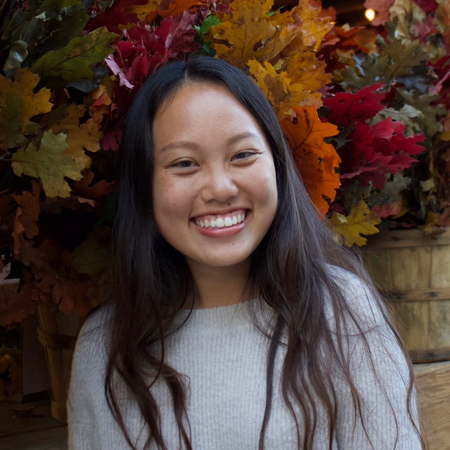
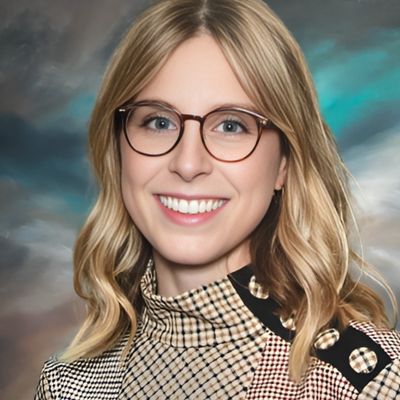
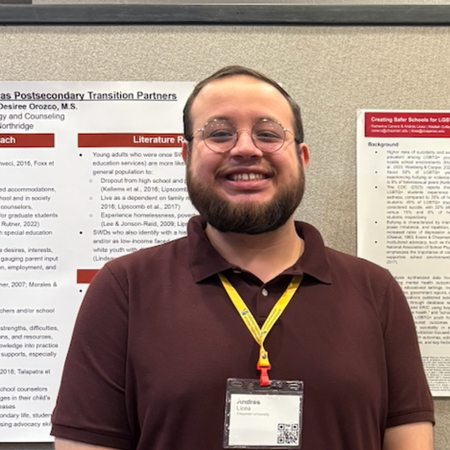
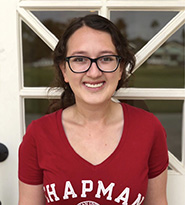
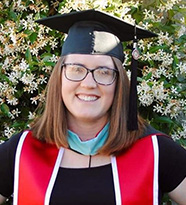
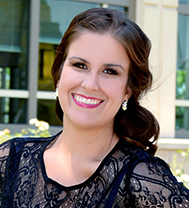
More Information
Program at a Glance
- Low student-to-faculty ratio, with close collaboration between students and faculty on research, publications, and presentations.
- Study abroad opportunities
- Tuition assistance and scholarships available
- Paid internship opportunities available.
- Approved by NASP since 2005. A graduate of a NASP-approved program is automatically eligible to become a nationally certified school psychologist (NCSP), pending documentation of an internship consistent with NASP standards and attainment of a passing score on the national school psychology (PRAXIS II) examination.
- One cohort with entry in the fall semester.
- A 69-unit program that can be completed in 3 years of full-time study or extended to 4 years of study.
- 600 hours of practicum and 1,200 hours of internship for a total of 1,800 hours of fieldwork.
- Dual degree program plus credential. Students can earn a MA in Educational Psychology after two years and an Educational Specialist (Ed.S.) in School Psychology after three years. Students also earn the California Pupil Personnel Services Credential in School Psychology at the same time as the Ed.S. degree.
- Option for an emphasis in Professional Clinical Counseling, which fulfills the educational requirements for the California license as a Licensed Professional Clinical Counselor (LPCC).
- Option to apply for the Ph.D. in Education with an emphasis in School Psychology.
Admission Requirements
- Submit an online application
- A statement of intent, the prompt can be found within the application.
- A current resume or curriculum vita that includes information on experiences working with children and/or families.
- One set of official transcripts from all institutions the applicant has received (or will be receiving) a baccalaureate degree from a regionally accredited college or university.
- Official GRE Scores (optional).
- Please note that passing one of the Basic Skills Requirements is not required for admission to the School Psychology program. However, admitted students will be required to turn in documentation of having passed before beginning practicum fieldwork.
- Two letters of recommendation are required. One recommendation must be from someone who has experience with the candidate in an academic setting and knowledge of the candidate’s academic potential. The second recommendation should be from someone who knows the candidate in a work setting, preferably one where the candidate works with children.
- $60 application fee.
*Applications submitted after the deadline will be reviewed on a space-available basis.
Supporting documents may be mailed to:
Office of Graduate Admissions
Chapman University
One University Dr.
Orange, CA 92866
Chapman Institution Code: 4047
Fieldwork and Graduation Requirements
- 69-unit program can be completed in 3 years of full-time study or extended to 4 years of study.
- 600 hours of practicum and 1,200 hours of internship for a total of 1,800 hours of fieldwork.
- Signed Chapman University Fieldwork Clearance Packet
- Met one of the Basic Skills Requirements
- Valid Negative TB Test (screening or test)
- Certificate of Clearance or 30-day substitute permit
- PASS Praxis Exam: 5403-School Psychologist
- Final Portfolio and Program Exit Interview
Licensed Professional Clinical Counselor (LPCC)
Within the Attallah College of Educational Studies, the additional coursework required to meet the educational requirement for the LPCC is embedded into two new emphases:
- MA in Counseling with an emphasis in Professional Clinical Counseling
- MA in Educational Psychology with an emphasis in Professional Clinical Counseling
The license in professional clinical counseling is a master’s level license regulated by the Board of Behavioral Science Examiner (BBS), the same state agency that controls licensing for Marriage and Family Therapists, and Licensed Clinical Social Workers. LPCC license holders can practice counseling and psychotherapy in private practice, community mental health, clinic settings, as well as in the schools.
For more information about the Attallah College LPCC programs, including required coursework and hours, visit the LPCC FAQs and info page.
For more information and application materials related to LPCC licensure, please contact the Board of Behavioral Sciences.
Chapman University Association of School Psychologists (CUASP)
Chapman University and the National Association of School Psychologists recognized the university’s first school psychology student association in 2008.
The Chapman University Association of School Psychologists (CUASP) unites the students in various stages of the program and serves as a medium for mentoring, peer support, and networking for practicum and internship sites.
The mission of both NASP and CUASP is to promote educationally and psychologically healthy environments for all children and youth by implementing research-based and effective programs that prevent problems, enhance independence and promote optimal learning. This is accomplished through state-of-the art research and training, advocacy, ongoing program evaluation, and caring professional service.
Visit the Chapman University Association of School Psychologists (CUASP) website.
International Projects
The graduate programs in Counseling and School Psychology have sponsored short-term travel courses in Guatemala, Cuba, South Africa, Cambodia, and Vietnam. These study abroad programs afford students practical experience and allow them to provide more culturally competent services to families from these areas that are living and learning in California.
Program Faculty and Staff
Program Director, School Counseling and School Psychology Programs
- Kelly Kennedy, Ph.D.
Assistant Director, School Counseling Program
- Randee Kirkemo, Ed.D.
Assistant Director, LPCC Program
- Amy Jane Griffiths, Ph.D.
Faculty
- Annmary Abdou, Ph.D.
- Jeanne Carriere, Ph.D.
- Jared Izumi, Ph.D.
- Zack Maupin, Ph.D.
Program Staff
Frequently Asked Questions
Where is Chapman University located?
Chapman University is located in the City of Orange, California, near historic Old Towne Orange. Our beautiful campus is centrally located in Orange County, a short distance from the 5, 55, 22, and 91 freeways.
When are Chapman's Ed.S. in School Psychology classes held?
In order to accommodate fieldwork in the schools, all classes are held in the late afternoon and evenings, between 4 p.m. and 7 p.m. Monday through Thursday.
Is the GRE test required? Are there cut off scores for the GRE test?
Starting with the application for admission for the Fall 2022 cohort, the GRE test is not required. However, students may opt to include GRE scores in their application. The inclusion of GRE scores may help candidates make a stronger case for their academic preparation for our program, but the lack of GRE scores will not negatively impact a candidate’s application.
What is the committee looking for when reviewing applications?
The School Psychology faculty take a holistic approach when reviewing applications, and they look at every required piece of documentation. The faculty are seeking to create the best cohort of students who bring a diverse mix of strengths and experiences. There are several prompts in the supplemental application that allow you to help clarify your qualifications for the program, and we encourage you to utilize those opportunities to help tell your unique story. When completing your application, you may help the faculty to see your strengths (e.g., years of experience in education, currently working with individuals with exceptional needs, or very high GPA/GRE) and address any weaker areas (e.g., "My grades weren’t as strong my first year in college due to X, but greatly improved once I…" or "Although I haven’t had the opportunity to work in an educational setting, my employment as an X has prepared me with Y skills that will be directly relevant to the field of school psychology”).
When are the 2025-2026 admission interviews?
Candidates who are selected for interviews will be notified approximately two weeks before the interview date.
Can I apply for the program at any time?
The School Psychology program at Chapman only admits one cohort per year. We hold on-campus interviews within a few weeks of the application deadline and make admissions decisions shortly thereafter, selecting a cohort that will begin their coursework in the fall.
How many students do you admit annually?
We admit one cohort per year, consisting of approximately 20 students. The admission rate varies annually with the number of applications received.
What is the cost of the program?
More details on current tuition »
How many graduate units can be transferred upon acceptance into the school psychology program?
Per university policy, a maximum of 12 semester credits (4 courses) can be transferred into the school psychology graduate program. All transfer credits must be approved by the Director. For more information on the policy, please see Chapman University’s Graduate Catalog.
Can undergraduate classes take the place of graduate courses offered in the program?
No, upon approval of the Director only a maximum of 12 units of graduate units can be transferred into the program.
Do I have to have an undergraduate degree in psychology?
No. Our students come from a variety of educational backgrounds. The vast majority have degrees in psychology, human or child development, sociology, or education. However, we have had successful students complete the program with a wide variety of undergraduate areas of study. If your academic background is in a completely different field (e.g., Chemistry), we strongly recommend that you complete some additional college level coursework in general psychology, child development, and/or education.
What is the Praxis School Psychology test?
To receive national certification under the National Association of School Psychologists (NASP) standards (i.e., to become a Nationally Certified School Psychologist or NCSP), a student must pass praxis exam. This is also a graduation requirement of our program and is typically taken during the final year of study. Please see the Praxis Study Companion file for more detailed information about the Praxis School Psychology test.
Does the Ed.S. in School Psychology program prepare me to work as a school psychologist?
Yes, students who successfully complete the Ed.S. program are eligible for the California Pupil Personnel Services (PPS) credential in school psychology.
Can the credential I earn at Chapman be used to practice/work in any state other than California?
Chapman University offers degree programs that lead to professional licensure within the state of California, and which may also allow graduates to be eligible for licensure or certification in other states. However, other than for the state of California, Chapman has not made an independent determination as to whether its programs’ curriculum meets a particular state's educational requirements for licensure or certification. Therefore, students and prospective students are strongly encouraged to contact the state’s licensure entity where they intend to practice to review all licensure and certification requirements imposed by the state(s) of their choice. Chapman is not responsible if a student is unable to qualify for state licensure or certification.
How long will it take me to complete this program?
Most students finish the Ed.S. program in 3 years. There is also an option to extend the program to 4 years of study.
Are students paid for their school psychology internship hours?
During their time in our program, students complete at least 600 hours of school psychology practicum (during the 2nd year of the program) and 1,200 hours of school psychology internship (during the 3rd year of the program). As these fieldwork assignments are completed within local school districts, there is variation regarding pay. Some internships are paid (via salary, hourly wage, or stipend), and some are not. The number of available paid internships varies annually.
What if I have a question about an admission decision?
Please follow the steps below:
- Any applicant who wishes to inquire about or to appeal an admission decision made by the Counseling or School Psychology program at the Attallah College of Educational Studies may contact the CSP Program Specialist in writing at schoolpsychology@chapman.edu. If the student wishes to submit a formal written grievance, this must be received by schoolpsychology@chapman.edu within 10 days of admissions decision. Once the written grievance has been received it will be forwarded to the Director, who will review documentation with the admissions committee and respond in writing to the candidate.
- If the student wishes to further grieve the response, they may do so in writing to schoolpsychology@chapman.edu within 10 days of grievance response. At this point, the applicant's file (including candidate’s application package and review scores) will be forwarded to the Director and a meeting will be arranged with the applicant to review applicant documents and program decision.
- Should the applicant desire to file a formal grievance, a written appeal should be sent within five working days to the Attallah College Associate Dean of Graduate Education or Dean. The Associate Dean or Dean will confer with the applicant and meet with the Director and faculty if appropriate. Within 10 business days of meeting with the Associate Dean or Dean, the applicant will receive a formal written statement indicating the college’s decision.
Does adding the LPCC emphasis make me eligible to work in private practice?
Students who add on the Licensed Professional Clinical Counselor (LPCC) coursework complete the academic requirements to become a LPCC, but they still must complete the mandatory post-graduation fieldwork hours and licensure exam.
For more information about Attallah College's LPCC program, including required coursework and hours, visit the Attallah LPCC FAQs and info page.
How do I receive more information?
The Attallah College of Educational Studies offers monthly graduate information sessions.
These sessions are great opportunities to obtain further information about the program
and meet with the program coordinator.
RSVP »
To request further information about Chapman University's graduate programs, please
complete the form at the link below so that the Office of Graduate Admission can send
you more information about life as a Panther.
Request Information »
Application Deadlines
Priority Application Deadline: January 20, 2025
- School Psychology with LPCC Emphasis (Summer Start)
- School Psychology (Fall Start)
*All application materials must be submitted by the priority deadline to receive full consideration for fellowships.
